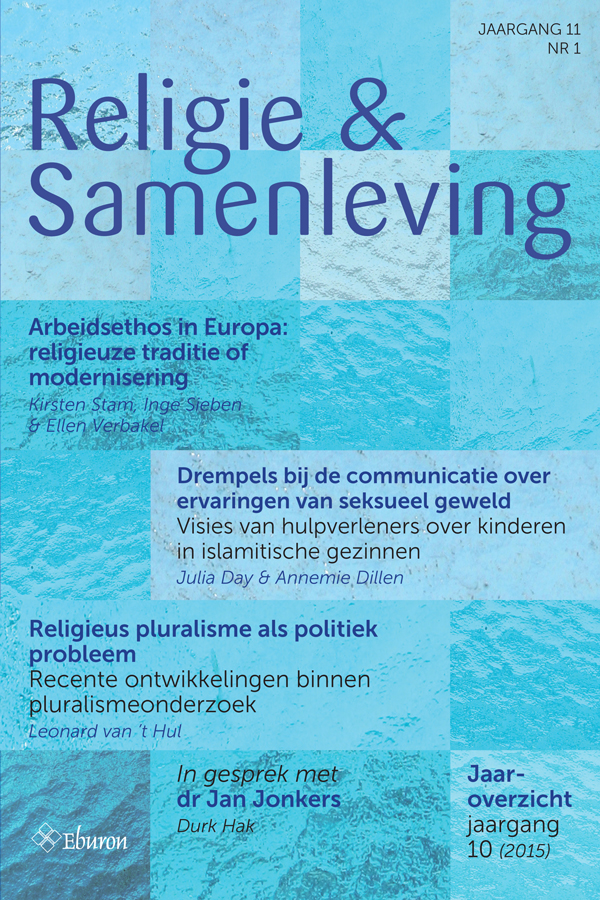Arbeidsethos in Europa: religieuze traditie of modernisering
DOI:
https://doi.org/10.54195/RS.12194Samenvatting
This study presents unique descriptive and explanatory analyses of cross-national variation in work ethic in 44 European countries (European Values Study, wave 2008). A strong work ethic is defined as the conviction that all individuals have a moral duty to work. Multilevel regression models show that religious heritage is the most important factor explaining variation in work ethic between countries. Protestant countries have weaker work ethic values than countries with a Catholic, Orthodox or Islamic heritage. This relationship cannot be explained by the level of modernisation. In addition, alternative explanations, such as communist history, the generosity of the welfare state, and population composition with respect to religious denomination and other individual characteristics can also not account for this. Thus, although our modern societies become increasingly secularized, religious heritage still impacts our norms and values about work in a significant manner.




